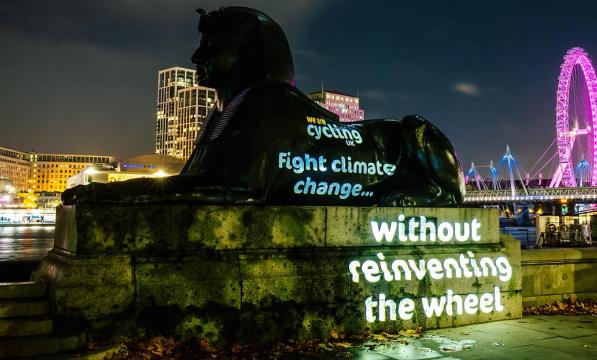Transport Secretary promises low-carbon vision: "We will use our cars less"
This document, which it transpires the DfT's press team didn't even know their Department had issued, is only the first step towards the Transport Decarbonisation Plan which the DfT is still intending to publish later this year.
So in one respect, yesterday's publication is merely a scene-setting document, a 'Plan for making a Plan'.
Yet the opening Foreword from Transport Secretary, Grant Shapps MP says something hugely significant.
In this Foreword, he sets out "a vision for how a net zero transport system will benefit us all".
Public transport and active travel will be the natural first choice for our daily activities. We will use our cars less and be able to rely on a convenient, cost-effective and coherent public transport network.
Transport Secretary, Grant Shapps MP
This will come as music to the ears not only for campaigners for walking, cycling and public transport, but for everyone concerned about the levels of traffic we suffer in our 'normal' daily lives.
As Cycling UK has repeatedly said over the years, our over-reliance on motorised transport, and our under-investment in cycling, walking and public transport has created roads and streets which are congested and dangerous, where children have to be kept indoors and many older or disabled people fear to venture out.
Not only are our sedentary lifestyles causing a health crisis due to physical inactivity, we also face a pollution crisis as well as a climate crisis.
This is the result of seven decades of motor-centric transport planning. Few people would vote for it to continue. The percentage of Britons who agree that, "For the sake of the environment, everyone should reduce how much they use their cars" has shot up from 56% in 2015 to 76% in 2019, with 24% now agreeing strongly. Only 10% disagree.
Yet talking about traffic reduction is seen as politically difficult.
It is of course particularly difficult to do so at a time when many people are facing the loss of their livelihoods, due (at least partly) to the loss of freedom to make day-to-day journeys. Nobody wants the current drastic restrictions on our freedom of movement to continue any longer than they have to.
Yet, when we eventually manage to step back and think about the longer-term climate crisis, coronavirus Covid-19 may turn out to be a moment where we all started to rethink which journeys were really necessary.
How much time and money have we been spending on journeys that we're now finding we didn't really need to be making?
How much pollutant and greenhouse gas emissions are we saving in the process? Greenhouse gas emissions from China have dropped by 25%, with similar reductions in pollutant emissions. Barring a resurgence of cases, China's death-toll from coronavirus Covid-19 now looks set to settle at about 3,300.
The number of deaths averted will of course be much greater, probably tens of thousands, possibly hundreds of thousands. Yet the lives saved through cleaner air is likely to be greater, in a country where 1.6m people die each year from air pollution.
So I hope the Government's Transport Decarbonisation document marks the imperceptibly-quiet start of a bigger debate, as we approach the United Nations' 'COP26' international climate summit (the 26th Conference Of the Parties to the UN Framework Convention on Climate Change), which the UK Government is currently due to host in Glasgow this November (though it may end up being postponed).
Research for Friends of the Earth has shown that if the UK is to get on course for decarbonising transport in line with a 2045 Net Zero target, we need to do a lot more than simply replace our petrol and diesel cars with electric vehicles.
We would also need to reduce road traffic by at least 20% by 2030, even by the most optimistic assumptions about how quickly we replace our vehicles with battery-electric motors, and decarbonise their power supply. On more pessimistic assumptions, it could be more like 60%.
It is therefore incredibly heartening that Grant Shapps has just become the first UK Government minister to talk about traffic reduction since John Prescott in the late 1990's.
I will have failed if in five years time there are not many more people using public transport and far fewer journeys by car. It’s a tall order, but I urge you to hold me to it.
Former Transport Secretary, John Prescott MP
Sadly. Prescott failed. Cycling UK and its allies will be doing all we can to ensure that Grant Shapps succeeds this time.
However this relies on Shapps persuading his ministerial colleagues in the Treasury to rethink the country's transport spending plans, rebalancing some of the £27.4bn earmarked for England's motorways and trunk roads over the next 5 years, and shifting it to fill the total absence of earmarked funding for local cycling and walking schemes.
Mr Shapps, we will wholeheartedly support your vision, but we cannot let you fail to deliver it.
Our health, our wealth and our climate now critically depend on it.






